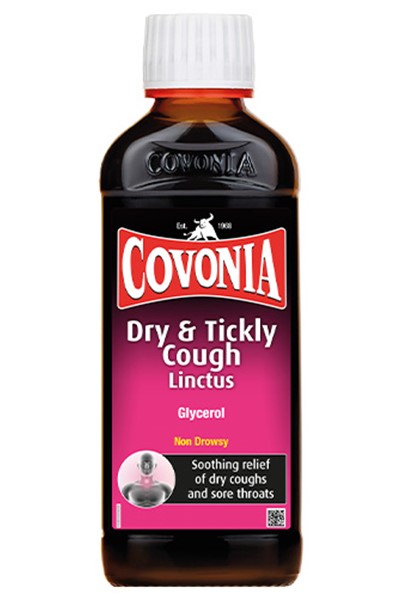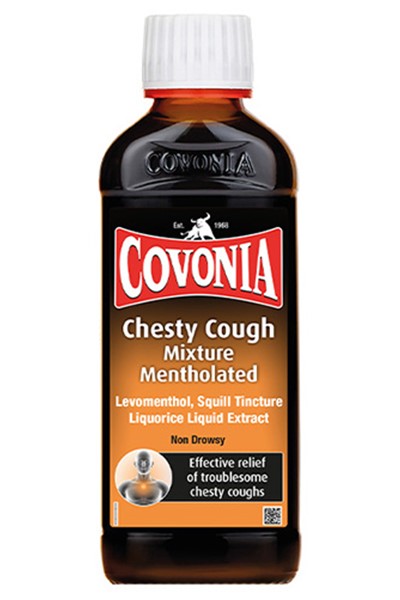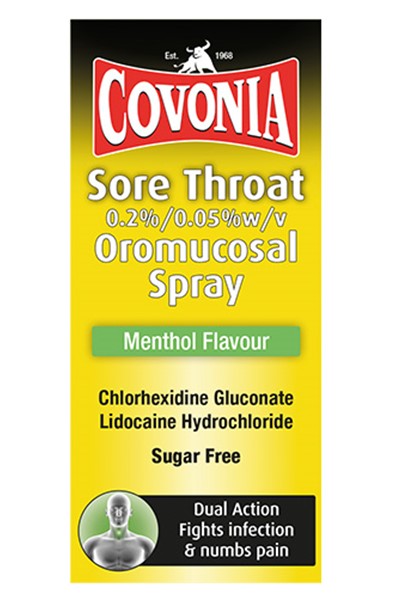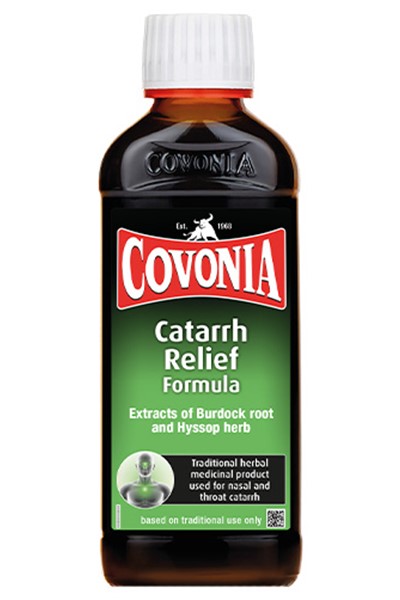BLOCKED NOSE & CATARRH ADVICE: CAUSES & TREATMENTS
A blocked nose is one of the major miseries associated with colds and hay fever. So, take a deep breath (if you can) and help speed up the healing process with our expert guide on how to help get rid of a blocked nose and the catarrh that comes along with it. Time to get bullish and learn about the causes, symptoms and treatments with Covonia.
WHAT IS A BLOCKED NOSE (OR NASAL CONGESTION)?
A blocked or stuffy nose, also known as nasal congestion, is when your nasal airways become blocked by mucus or inflamed blood vessels in your sinuses. It’s not usually a cause for concern and generally clears up on its own within a week or two.
BLOCKED NOSE SYMPTOMS
The main symptom of a blocked nose or ‘stuffy’ nose is difficulty breathing, as your airways become constricted. Other key symptoms include:
- Discharge from your nose
- Pain and tenderness around your nose
- Swelling around your eyes
- Reduced sense of taste or smell
- Other cold and flu symptoms like aches, pains or headaches

WHAT CAUSES A BLOCKED NOSE?
Blocked noses can be caused by a number of different things, but the most common are colds and flu, sinus infections and allergies or hay fever. Sometimes blocked noses can also be caused by irritants like smoke, dust and pollution.
WHAT IS CATARHH?
Catarrh, also called postnasal drip, is a medical term for a build-up of mucus or phlegm in an airway or cavity of the body. It’s most commonly found in the nose, throat or sinuses. Having catarrh can make you feel like you constantly need to cough, have a blocked throat, difficulty swallowing or a sore throat. It is a symptom of an underlying cause and will usually clear up on its own.
WHAT CAUSES CATARRH?
Catarrh is caused by inflammation or irritation of the nasal and throat lining, which causes it to create mucus to prevent pathogens from getting into the body. Common catarrh causes include allergic reactions, hay fever, allergic or nonallergic rhinitis and sudden changes in weather conditions.
HOW TO HELP GET RID OF A BLOCKED NOSE & CATARRH
Although having a blocked nose or catarrh isn’t serious, it can be frustrating and uncomfortable; not to worry though, as there are several nasal congestion and catarrh treatments to ease your symptoms. Here’s what to do with a blocked nose:
- Sleep with your head on a high pillow – this will help stop the build-up of catarrh in your sinuses
- Use steam inhalations to liquefy mucus – this could be a hot shower or warm compress
- Keep the air in your bedroom moist – dry air can further irritate the lining of your nose and throat, whereas moist air can soothe irritated tissues
- Drink plenty of fluids – stay hydrated with water and juices which can dilute mucus for easy expulsion
- Try antihistamines – if your nasal congestion is being caused by an allergy to things like pet hair or dust, antihistamines can help to alleviate symptoms, fast
- Try and find out exactly what’s causing your symptoms - is your congestion caused by a cold, hay fever or another allergy? Identifying the cause can help you get rid of symptoms and prevent it from happening again
WHAT TO AVOID WITH A BLOCKED NOSE & CATARRH
There are also some things that you should avoid if you are struggling with a blocked nose and catarrh, as they can make symptoms worse or delay your recovery:
- Smoke or air pollution – this can further irritate the linings of the nose
- Don’t overuse decongestant sprays – some cases of non-allergic rhinitis are triggered by overusing nasal sprays, so follow the instructions on the box and only use them when needed
- Work in areas of noxious fumes or polluted air – again, this can further irritate your nose and throat
- Swim in chlorinated pools – this can exacerbate symptoms
- Open your windows – fresh air is good for your immune system and can help you breathe more easily
WHEN TO SEE YOUR GP
Often a blocked nose will clear up on its own. However, if your symptoms persist or get worse, you should seek medical attention. Make sure you visit your GP if you have any of the following symptoms:
- High temperature or fever
- Wheezing
- Shortness of breath
- Blood in mucus
- You have pain or discharge from your ears
- Symptoms are severe, if they persist, or if they worsen
To find out more expert advice and information on coughs and colds, visit our Articles & Advice hub. Get bullish with your cough by browsing our full list of specialist products, and take life by the horns with Covonia.








